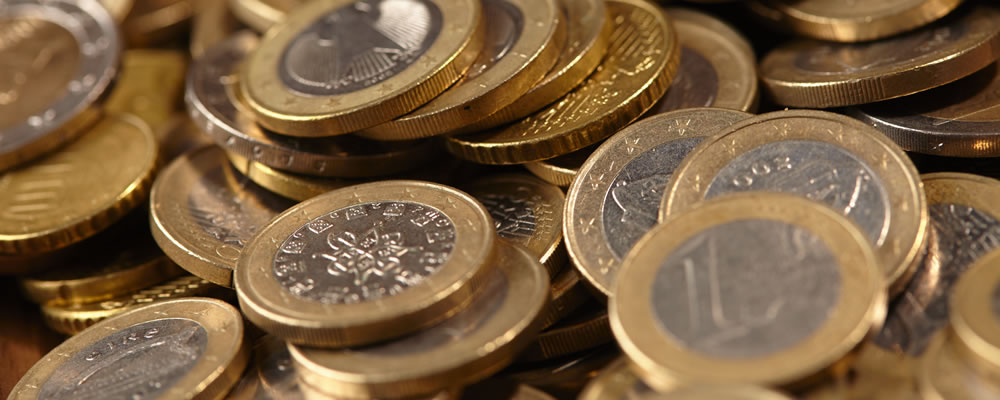- Euro Pound Exchange rate sees Minuscule Increases as Sterling Rally Dissipates – Relief rally that began on Monday fizzles out.
- UK Business Confidence Falls Post-Brexit – A marked decrease in new hires and planned spending highlights post-Brexit concerns for businesses.
- Eurozone Industrial Production Shows Notable Decline in Pre-Brexit Period – Today’s release shows a substantial decrease in industrial output.
- Forecast Appears Positive for EUR/GBP to Rally on Bank of England Rate Slash.
The Euro Pound exchange rate has been on a downward trend since Sterling found favour on Monday after Tory party leadership hopeful Andrea Leadsom conceded the race to the generally preferred Theresa May.
The Pound instantaneously rallied on the news of Leadsom’s departure and continued to accumulate gains as it came to light that Theresa May would be sworn in later today.
As investors had expected the Conservative leadership contest to go on into September, the unexpectedly speedy conclusion to events was well received and sent the British currency higher across the board.
The Italian banking crisis and further warnings for slowed Eurozone growth post-Brexit have kept investors weary of the common currency as it appears financial instability remains rife throughout the union.
The Euro Pound exchange rate currently trades at 0.8336 and has seen a marginal rise so far this morning as Sterling’s relief rally fizzles out on falling business confidence.
Euro (EUR) Fails to Attract Investors as Eurozone Finance Ministers Highlight Contracted Growth
The Euro has been struggling under the weight of the Italian banking debt crisis for weeks as over €300 billion of bad loans threatens to collapse financial institutions if they do not receive an influx of cash.
Italy is the third biggest economy in the Eurozone and as such, the prospect of an Italian bank going under sends pangs of fear through European markets and economies. Italian Prime Minister Matteo Renzi appears to be gearing up to forgo recent European Union banking guidelines set out in January.
The new rules state that creditors must be bailed-in first before the banks get any taxpayer-funded bailouts after the monumental amount of public money that was siphoned into banks during the 2008 world banking crisis.
Further downward pressure for the Euro came from recent remarks by Eurozone finance ministers regarding waning growth within the bloc post-Brexit. EU economic affairs commissioner Pierre Moscovici was quoted as saying:
‘The U.K. leave vote has surprised markets, and economic uncertainty has increased significantly since then… The longer the uncertainty lasts, the costlier it will be for the economy’
Yesterday’s Economic and Financial Affairs Council, or ECOFIN meeting set out plans to reprimand both Spain and Portugal for failing to tighten their budgetary deficits. Fines are on the table but it’s unclear how hurting the waning economies further would help matters in the Mediterranean nations.
Today’s Eurozone industrial production report for May printed at a significant decline, showing just 0.5% year-on-year, down from 2.2%. This pre-Brexit data highlights the impact the referendum had on the Eurozone economy even before the actual vote.
Sterling (GBP) Rally Subsides with Theresa May set to be Sworn-In Today
The Pound’s recent Theresa May related relief rally appears to have burned out today as businesses come out in agreement that the Brexit has shaken sector confidence to its core.
Roughly two-thirds of firms included in Credit Suisse’s recent survey say they are planning to reduce or postpone spending within the UK for the remainder of the year. It also came out that more UK businesses plan to cut spending rather than ramp up for the first time in three years. Hiring has seen a marked decrease and British stocks have taken a hit.
While the FTSE 100 index remains flat, possibly due to the multinational nature of the corporations listed, the FTSE 250 has seen a 0.3% slide as UK business confidence slips in the wake of the real-world consequences of the Brexit.
More government bonds in the UK and Germany have slipped into the negative as concerned investors elect to pay for the privilege of lending these two nations capital in an attempt to secure their funds.
With the political uncertainty lifting but the economic worries continuing to present themselves, the Pound is likely to experience a period of increased volatility, possibly until Theresa May unveils her new cabinet.
Euro Pound Exchange Rate Forecast to Rally on Thursday’s BoE Interest Rate Cut
The main factors that are due to effect the Euro Pound exchange rate this week are tomorrow’s Bank of England rate decision and the coming construction of Theresa May’s new conservative parliament.
The BoE is expected to slash rates to at least 0.25% but some analyst believe the central bank may elect to gut their benchmark rate to 0%. Even the best-case scenario cut will place extensive downward pressure on the Pound against all the majors, with a cut to 0% having the potential to take the currency to new lows.
If Friday’s European ecostats manage to gain attention after the Bank of England’s rate decision, there is the possibility of movement for the single currency as Eurozone inflation data is published along with the European Central Bank’s survey of professional forecasters.
If Eurozone inflation edges closes to the ECB’s just-under 2% target then the Euro may experience some increase in demand, however it will likely be sentiment expressed by the ECB driving the Euro.
Still, the biggest impactor for the Euro Pound exchange rate this week is bound to be the Bank of England’s rate decision, which all investors and traders will be attending eagerly.



